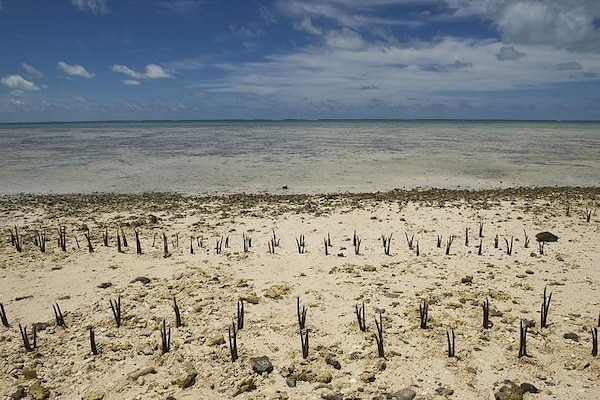Originally published in Monthly Reveiw, vol. 69: 01
In the summer of 2016, the acceleration of climate change was once again making headlines. In July, the World Meteorological Association announced that the first six months of 2016 had broken all previous global temperature records, with June being the fourteenth month in a row of record heat for both land and oceans and the 378th straight month of temperatures greater than the historical average. Heating has been especially rapid in Arctic regions, where thawing effects are releasing large amounts of methane and carbon dioxide. On July 21, 2016, temperatures at locations in Kuwait and Iraq reached 129oF, the hottest ever recorded in the Eastern Hemisphere. The disruptive effects of bi-polar warming were evident in the unprecedented crossing of the equator by the Northern Hemisphere jet stream, where it merged with the Southern Hemisphere jet stream, further threatening seasonal integrity with unforeseen impacts on weather extremes and the overall climate system. Meanwhile a report from the United Nations Environment Program (UNEP) described the December 2015 Paris Agreement on climate change as “outdated even before it takes effect,” with climatologists now expecting a global warming of at least 3.4oC (more than double the 1.5oC limit supposedly built into the agreement) even if the promised emissions goals of the nations involved are somehow achieved despite the lack of binding enforcement mechanisms. “The world will still be pumping out 54–56 gigatons of carbon dioxide equivalent a year by 2030 under current plans, well above the 42 gigatons needed to limit warming to 2 degrees,” according to the UNEP report.
The historical irony in this situation is hard to miss. Just a couple decades ago, we were told that neoliberal capitalism marked the “end of history.” Now it appears that the system’s ideologues may have been right, but not in the way they envisioned. The system of fossil-fueled neoliberal capitalism is indeed moving toward an end of history, but only in the sense of the end of any historical advance of humanity as a productive, political, and cultural species due to the increasingly barbaric socio-economic and environmental conditions the system creates. There is now no alternative to the end of history as we know it. The sustainable development of human society co-evolving with nature including other species now depends on a definite historical break with capitalism (wage-labor, market competition, production for profit) as the dominant mode of production. That is the main lesson of three recent books: Ian Angus’s Facing the Anthropocene, Andreas Malm’s Fossil Capital, and Naomi Klein’s This Changes Everything. To solve the climate crisis—which is only part of the broader environmental crisis created by capitalism—competitive, profit-driven production under unequal class control must be replaced with a system in which working people and their communities collectively and democratically regulate production and other interactions with their material and social environment. Sustainable development of people cooperatively co-evolving in a healthy way with other species must replace the profit motive, exploitation, and competition as the motive force in production and in the entire system of material provisioning. To deny that the climate crisis is hardwired into capitalism, and that we need a new system to deal with it, is just as misleading and dangerous as to deny the existence of human-induced global warming. Both forms of climate denial must be overcome in theory and practice.

